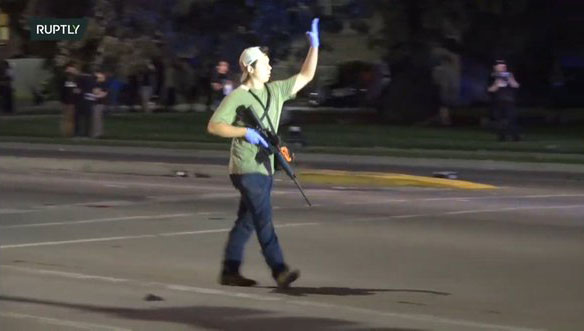
One of our favorite beach areas in Barbados, which many U.S. virtual workers are bound to discover if they partake of Bim's "Welcome stamp" program.

Along with a Colorado friend of ours, I dig into fresh, grilled fish (dolphin -no not "Flipper"!) served with macaroni pie at the Oistins Fish Market, in May, 2010. This place still has some of the best dining deals in the island, at about $10 U.S. /person for a fresh -cooked fish platter, and macaroni.
Are you or your friends considering going to a foreign location to do remote work? According to the WSJ (Aug. 29-30) "an estimated 30% of the global workforce will work remotely in coming months". Thousands alone will be heading for Barbados, West Indies, where the new 'Barbados Welcome Stamp' program has been implemented.
This Barbados program, one of dozens rolled out by as many nations in recent weeks, was formally announced in July by Prime Minister Mia Mottley. It will allow any foreigners- including Americans - to live and work in Bim tax free for one year. It is specifically geared to employees working remotely, and who will be free to base themselves in Barbados for that time.
Alas, the Welcome Stamp program isn't cheap: it costs $2,000 for individuals and $3,000 for families. The payoff is you get to live in a beautiful place, with fantastic beaches and crystal clear water. The program also allows for unlimited exit and re-entry during the year as well as free public school access for visa holders' children under the age of 12.
According to Busi Skeete, U.S. director of Barbados Tourism (quoted in the WSJ, ibid.) it was designed to stimulate the economy on the island, where tourism represents 14 percent of the GDP.
But there are some things to know, to be aware of, before pulling up stakes and leaving for this island nation where I spent 20 years. Below I go through the main things the media or pamphlets may not divulge.
1. Living in Barbados is not cheap. Just like in the States there is enormous real estate pressure and homes can cost dearly. I understand from conversations with friends still there that homes in the neighborhood where ours was (off Chelsea Road, a designated UN World Heritage site) are now going for a half million U.S. Of course, it is possible to rent a place and that is surely the best bet for a foreigner - say under a year's lease. My brother-in -law is currently renting a bungalow not far from the sea in the same area for U.S. $1,200 a month.
2. Get ready for high food costs, and at every supermarket you find. This was from a Barbados Forum post 8 years ago:
"Food is VERY expensive. 2.7 times the cost for American brands is probably about right, if not modest. Some US food items are 5 times the US price (i.e., ice cream, snack foods, etc.) Local (Caribbean) brands are a bit cheaper. Bajans do not eat a lot of American junk food items b/c they are so very expensive. However, even the basic (egg, bread, cheese, butter, milk, etc) are very expensive. "
When we went in April of 2016, we found price differences from our U.S. purchases a bit higher than that. We had written in our journal that two days after arriving from Colorado "we had to get to the supermarket where we bought a dozen eggs, a half gallon of Almond milk, a package of chicken hot dogs, catsup, Alpen cereal, 3 oranges, 6-pack Banks beer, one loaf of bread, one pound cheese" for a total of BDS $160. Since 1 U.S. dollar = $2 BDS, that translated to an $80 USD tab. And that was for just two adults. Imagine what the bill would have been for a family of 4, or 5. Our most expensive item on the list? The Alpen cereal at $15.50 BDS a box.
Other items, necessities are also higher in price, and again why the cost of living is estimated to be 12-13 % higher than even in U.S. cities like New York. Regular gasoline, ditto. When we were there in 2016 it varied from $14 to $16 BDS a gallon. (Fortunately, since we have checking accounts in Bim, we could use the money there as opposed to charging U.S. credit cards or raiding our U.S. bank accounts).
3. "Free public school access" for visa holders' children may not mean what it does in the U.S. For students under 12 it would mean attending a government primary school. The only alternative is an independent private primary school like St. Gabriel's - for which the following fee information was provided in 2019:
"A capital contribution, which is non-refundable is due for entry into the school is as follows
A) One note payment of $1800.00 bds for the first child (from September 2019).
B) A payment of $900.00 bds for each additional sibling entering St. Gabriel’s (from September 2019). This is valid within one year after the first child has left the School.
A DEPOSIT of one Term’s Fees of $3350.00 (from September 2019) is required for Non-National children. This is refundable when he / she leaves the school, provided that one Term’s notice is given in writing in advance. "
For older children, Ex-pats, non-nationals generally choose one or other of the following private schools: 1) Ursuline Convent, or 2) Presentation College. The elite secondary schools only allow admission based on selection, which is usually done with the Common Entrance exam given to all primary school students.
4- If you're planning to drive in Bim you need to learn how to do so on the left side of the road, as the Brits do. Also, be aware that traffic jams in Barbados have now reached almost legendary and surreal status, e.g.

,






